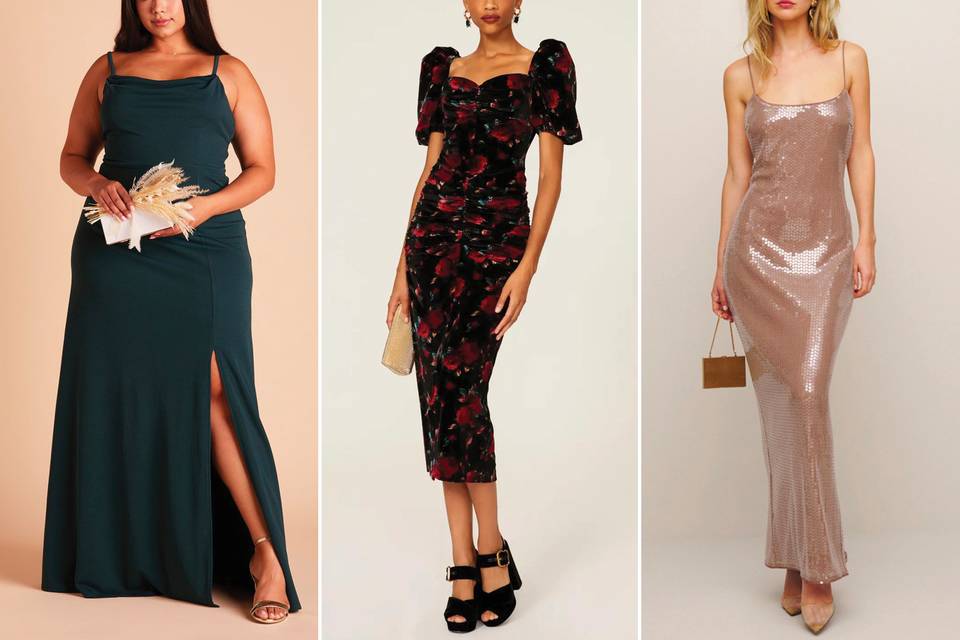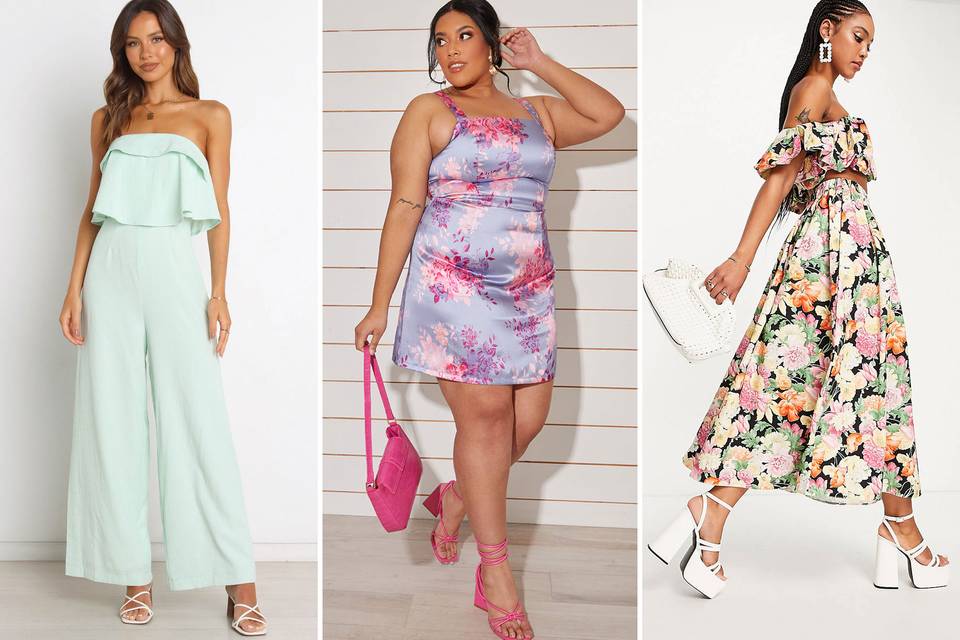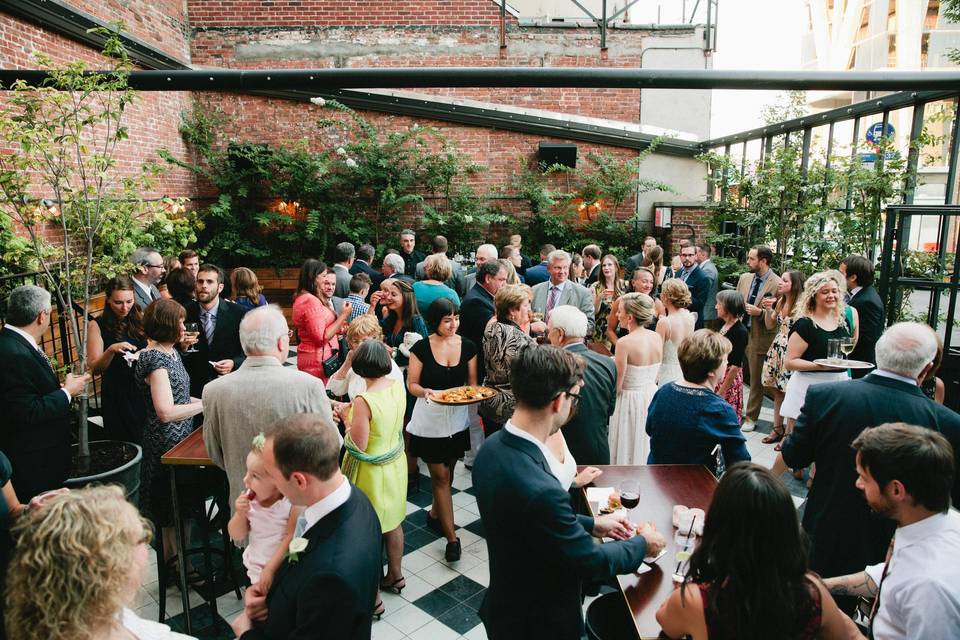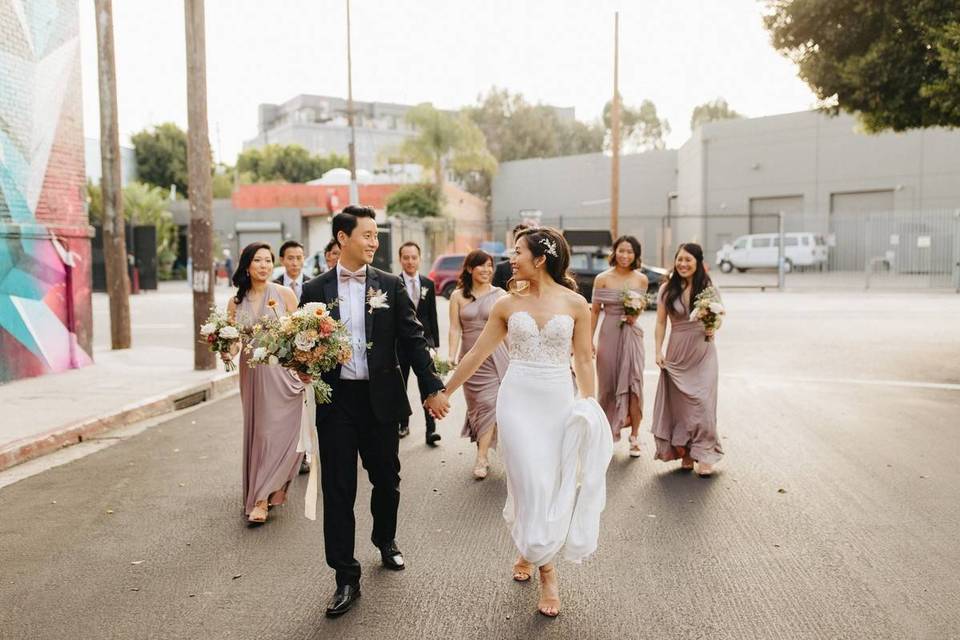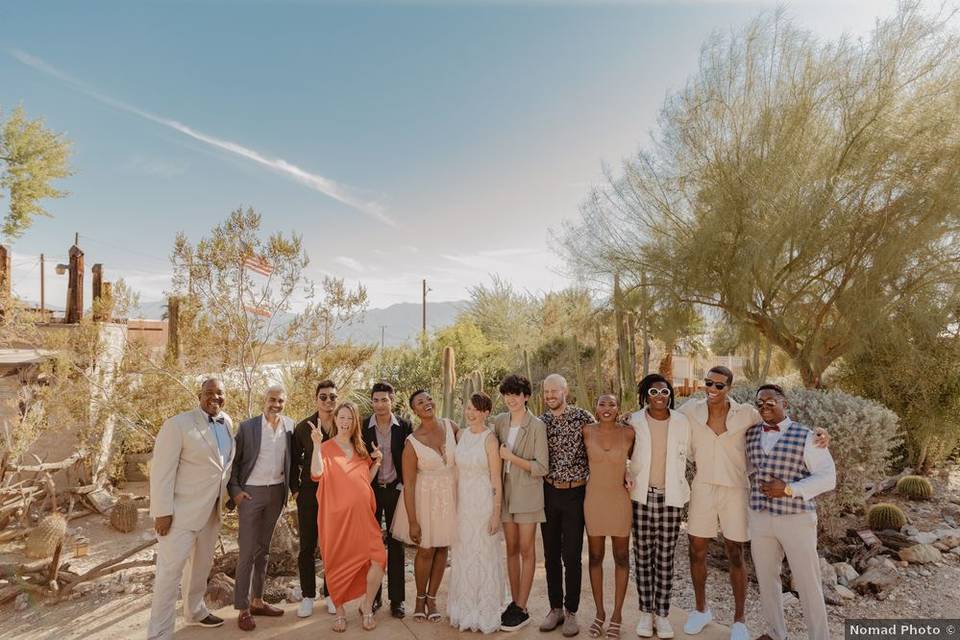4 Things Every Wedding Guest Needs to Know—and 4 They Don't!
When it comes to your wedding guests, communication is key. Here are the things you must share with your guests, and four things you shouldn't.
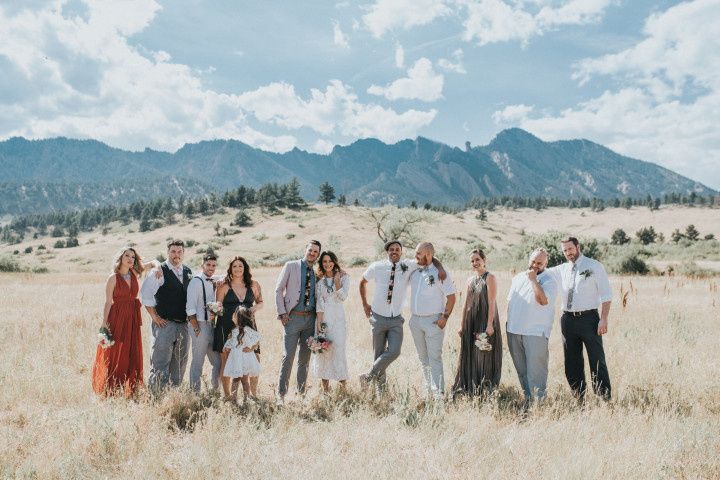
Like many big moments and events in your life, your wedding day will be accompanied by a great deal of celebration from the important and even not-so-important people in your life. With that excitement, however will come a fair share of unsolicited questions and comments about every little detail regarding your big day. People are nosy—and they want to be in the know about pretty much everything they can be about an affair as glamorous and momentous as a wedding. Of course, you’re not obligated to spill the beans about each and every detail, although there are some things to tell your wedding guests.
To help you navigate this often unchartered territory, we asked wedding planners to reveal the things you should tell your wedding guests—and the things you don’t.
Things your wedding guests should know:
When and where the wedding ceremony and reception will be held
Your goal as an engaged couple is to make it as easy as possible for your guests to arrive at your wedding on time, so it’s best to make these details crystal clear in the invitation. “From the street/GPS address of the venue, to the nearest parking, to the travel times, guests should be aware of where the event is taking place, how long it will take to travel to the location and where to park when they do arrive,” says Jodi R.R. Smith of Mannersmith Etiquette Consulting, in Marblehead, Massachusetts.
Any accommodations and transportation available
One of the most important things to tell your wedding guests is any travel and/or room block information, which should be noted on the invitation as well as on your wedding website. “Whether or not the wedding is considered ‘local,’ many guests will prefer to stay in the area and might not know the best options,” explains Danielle Rothweiler of Rothweiler Event Design in Verona, New Jersey. “Hotel blocks should be provided to give the guests a less expensive option as well as a place to pick up a shuttle and to be with everyone else if possible.”
Attire expectations
Wedding planners recommend that you always include a dress code no matter how formal or casual your desired attire may be. “Guests want to arrive appropriately dressed and it is your role as the host to help guide them,” says Smith. If you are choosing something beyond the easily understood ‘black tie’ or ‘cocktail attire,’ she recommends offering additional explanation. “Unless all of your guests are from the Big Island, using ‘Hawaiian Formal’ will cause confusion, so be sure to illustrate exactly what you expect.”
It’s also not a bad idea to give guests a heads up in regards to footwear, especially if they’re going to have to do a lot of walking between different spaces, or if everything is outdoors on grass. “Sometimes people won't listen to your advice, but I have seen so many people in improper footwear at outdoor weddings (think women in heels trying to walk down a grass/dirt hill for a ceremony location) that I tell my couples to shout from the rooftops that people need to wear flats,” adds Leah Weinberg of Color Pop Events in Long Island City, New York.
Seating arrangements
While it might not seem all that important, experts agree one of the most important things to tell your wedding guests is where they’re sitting during the reception. “If you're having a wedding with a sit-down meal and it's not a small, intimate wedding, then you've got to assign your guests to tables at which to sit for dinner, but that doesn't mean you need to assign them to specific seats,” says Weinberg. “I always tell my couples that people like to be told what table to sit at, but they don't like being told which seat to sit at.” Her favorite way to convey seating assignments is by escort card, since guests can pick up a card to take with them rather than having a chart, which can create a bottleneck as guests look around to find their names.
Things your wedding guests should NOT know:
The history of your relationship
While it might be nice to share a brief story of how you met with your wedding guests on your wedding website, you should not feel obligated to do so. “The couple may decide what to share with friends and family, but wedding attendants should not be employing their toasting duties to illuminate the sordid details of the couple’s past,” says Smith.
The cost of anything related to the wedding
You might be surprised by how many guests (and non-guests) will ask you questions about your wedding budget and expenses, but you absolutely do not have to divulge. “This will only cause aggravation and arguments about what things ‘should cost’ and how much the couple ‘overpaid’ for everything,” says Rothweiler. “Guests also do not need to know the cost of the plate to write a check either because that method is outdated and doesn't actually work anymore.”
Who’s on the guest list
Many times guests want to know who is actually invited to help determine if they will come, where they will sit, etc., but Rothweiler points out that there’s no reason to give guests a reason to gossip prior to the actual wedding and the guest list shouldn't determine anything for them. “Keep this quiet and avoid the drama,” she adds.
What your gown looks like
Plenty of people will ask—and some might gawk when you refuse to show them!—but you should not feel pressured to share photos of your wedding gown (or to even divulge details). “This is a surprise for more than just the groom—it is a surprise for everyone,” says Rothweiler. “If a guest wants to know what the bride is wearing, it's either out of innocent curiosity, or it's not, but whatever the reason, don't tell anyone.”
Disclosure: This post contains affiliate links, some of which may be sponsored by paying vendors.

